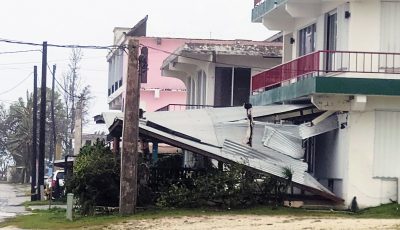March to Jerusalem
OK, let me finish off NCAA’s March Madness. The Badgers of Wisconsin went against the Wildcats of Kentucky, the Huskies of UConn, and top seeded Gators of Florida on the men’s side with the Huskies and the Wildcats at the championship. UConn went against Stanford and Notre Dame v. Maryland in the women’s final four, with the UConn and Notre Dame at the finals. UConn dogs prevailed against the Kentucky cats. Meanwhile the much-anticipated contest of two undefeated women’s teams came when the Fighting Irish faced the Huskies but with the Huskies at an emotional advantage, this year is UConn1 of both gender.
International football (soccer in Texas) dominates CCTV international sports reporting. NBA is carried but usually in conjunction with CBA. The PGA with fading Tiger, and tennis with China’s Li Na who has yet to make it past Serena Williams, also make the news. But NCAA football and basketball are hardly mentioned, and American pro gridiron, for all its gore, does not make the sports scene at all.
Though we kept an eye on March madness, it is the marches in the name of democracy that got our attention. Demos cratos, Greece’s people’s rule ideationally and cognitively through speech and the word before behavior (Socrates took the hemlock in principle) is what got us wondering whether we are back to people’s power rather than abstract people’s rule.
U.S. Supreme Court recently ruled that laws limiting campaign contributions (money is considered a form of expression and is protected as freedom of speech) unconstitutionally limits that freedom. The Koch brothers, major investors in Canada’s tar sands headed to Houston, just got a favorable ruling as representative American democracy is reported on the pocket books of the wealthy. That got my 85-year-old friend from Houston, erstwhile a corporate VP for Gulf Oil, out to protest with breath and body the Keystone XL pipeline decision that the White House will soon decide after State reported that the pipeline poses no threat. (Oil interest paid for the research and report.)
Ukraine’s rapid disintegration and Russia’s reclaiming of Crimea got Putin and Russia off the good graces of NATO, the EU and the US of A. Never mind that the duly elected President of Ukraine was ran off the country with the burning of Hrushevskoho Street in downtown Kiev through the protest movement called EuroMaidan, and that 96 percent of Crimean residents democratically voted through a referendum to align back with Russia. Democracy is now the say-so of elite forces whose allegiance is unmistakably on the bottom line of oil, gas, and tar profits, fossil fuel rich Russia included.
Fracking, a method of extracting tar from sand, widely protested in the U.S. not too long ago, has suddenly found favor in the eyes of traders who wants to fill up the gap that Russian fossil fuel might leave empty should it be withdrawn from the European market. I do not think it will, but it affirms again our conviction that the wars of humanity fought since the Kaiser’s rights to the oil fields of the old Ottoman Empire was curtailed. Who controls the spigot that fuels modern industrial power rules.
Taiwan students suddenly mounted determined protest against a trade agreement that is a win-win situation with the business community, but a symbol of closer ties with Beijing, anathema to the independence movement of Taiwan that wants old Formosa separate from the mainland. Taipei is redefining people’s rule by law to people’s power on the strength of protests. Ironically, the KMT that was the party of nationalists against Mao’s flash-in-the-pan communism finds itself at loggerheads with the hotheads of Taiwan’s independence.
Marches to depose the constitutionally elected government of Thailand continues as southern Thais reveal the regional ethnic differences between groups that make up old Siam. Democracy as the rule of constitutional law is being shunned by the well-off and the well-to-do of old Bangkok for a chosen people’s council.
It was “government of the people, by the people, and for the people” that Abe Lincoln articulated, enshrined not only in the Lincoln Memorial at the Washington Mall in D.C. but in every textbook around the world. It took another century before the mandated “separate but equal” rule that followed the Civil War was revealed to be just a shade of the old racial prejudice that sustained slavery.
The passing of the Civil Rights Act shortly before I first came to the United States showed that the mere passing of a law would not change longstanding practices of racial discrimination. It didn’t. It still hasn’t. A good segment of American society has yet to accept “black” Barrack Obama in the White House, never mind that his father was Kenyan of clan leadership pedigree and his mother was an English-German-Swiss-Scot-Irish-Welsh and a shade Mongolian white lady from Kansas. Racial discrimination is alive and well in the “home of the brave and land of the free.”
The imagery among kindred Christians this Sunday is the march to Jerusalem, understood now to be an individual’s decision to confront the pillars of power. It was an intentional march, and he evidently was not ignorant of the consequences. Where goeth thou with thine march, pilgrim?
Jaime Vergara previously taught at SVES in the CNMI. A peripatetic pedagogue, he last taught in China but makes Honolulu, Shenyang, and Saipan home. He can be reached at pinoypanda2031@aol.com.



























